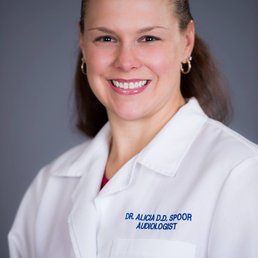When meeting people for the first time, I’m often asked “What do you do for a living?” Enthusiastically, I respond, “I’m an Audiologist!”
“What?”
I pause for a moment to see if the person starts laughing, thinking I’ve never heard that joke before, or to see a blank face waiting for me to repeat or rephrase what I just said.
When I started thinking about professions in elementary school, I’m quite sure Audiology was not a common term. It may still not yet be well-known, but my profession is working to change that.
What is an Audiologist? When the “What?” question comes up in conversation, I answer again with more clarity: Audiology, hearing and balance healthcare. Audiologists are doctoral-level healthcare providers that specialize in the ear, specifically the hearing and balance functions. Since 2007, all Audiologists earn a Doctor of Audiology (Au.D.) degree and must be licensed by their state to provide services. Audiologists are not Doctors of Medicine, and Audiologist do not perform surgery. Like Optometrists, who provide an entry-point for vision care, Audiologists offer an entry-point for hearing and balance care.
You’ll find Audiologists in school settings, hospitals, government facilities, outpatient clinics, VA centers/hospitals, private practices, research facilities, ear nose and throat (ENT) offices, and more working with newborns, children, teens, adults, and geriatric patients. Audiologists have a wide range of specialty: occupational, pediatric, geriatric, diagnostic, (re)habilitative, tinnitus, cochlear implant, vestibular, etc. Many Audiologists specialize in two or more of these areas and may change their specialties during their career.
So, what is an Audiologist? I tend to think of an Audiologist, like me, as a person working to improve the quality of life for each patient, their family, friends, and support system, through better communication.

